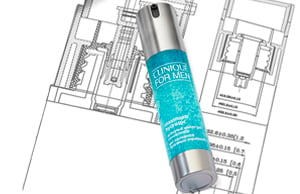Acrylonitrile Butadiene Styrene (ABS) is considered as an impact-resistant engineering thermoplastic and amorphous polymer. It is made by emulsion or continuous mass strategy and has a chemical formula (C8H8·C4H6·C3H3N)n.
The current U.S. production level for ABS is approximately 1.2 billion pounds per year. The main reason for the widespread use of ABS is its unique combination of properties that can be attributed to the composition of its three main components.
Composition and Properties of Acrylonitrile Butadiene Styrene (ABS)
The composition consists of approximately 15-35% acrylonitrile, 5-30% butadiene, and 40-60% styrene. The acrylonitrile provides chemical resistance, high strength and heat stability; the butadiene provides toughness, and impact resistance even at low-temperature properties; while the styrene provides rigidity, glossiness and improved processability.
Variations in the percentages yield different resin grade which offer unique characteristics and properties. ABS is susceptible to UV-light and will discolor in its natural state with extended exposure to sunlight. This issue can be overcome through the incorporation of in mold or sprayed colors, and/or the use of a UV topcoat.
Processing of Acrylonitrile Butadiene Styrene (ABS)
Acrylonitrile Butadiene Styrene (ABS) can be processed with all thermoplastic processing techniques, including, but not limited to, extrusion, rotational molding, thermoforming, injection molding, and injection blow molding. This, along with its unique range of properties, contribute to its use in a wide variety of applications.
Applications of Acrylonitrile Butadiene Styrene (ABS)
Various properties, including the ones mentioned above, make Acrylonitrile Butadiene Styrene (ABS) appropriate for automotive, electronics, home appliances, building and construction, transportation businesses, and so forth.
ABS is also used to make legos, athletic gear, gardening apparatuses, and medical equipment that includes manufacturing nebulizers, compressors, etc.
Recycling and toxicity of Acrylonitrile Butadiene Styrene (ABS)
Acrylonitrile Butadiene Styrene (ABS) is biocompatible, 100% recyclable, and non-toxic material. It is considered as non-leaching and stable.
It does not include any known carcinogens (cancer-causing agents), and no unfavorable health impacts have been identified with its exposure.
One more thing you should keep in mind that recycled ABS can be mixed with pure material to deliver products having low cost and high quality.








